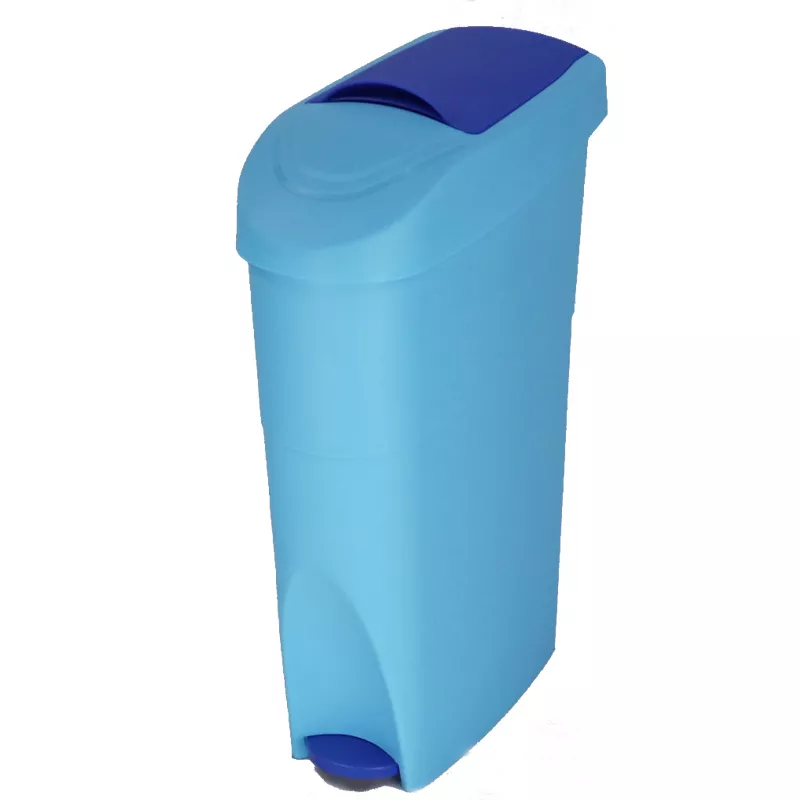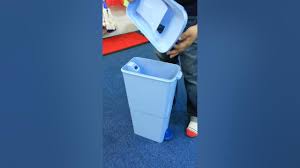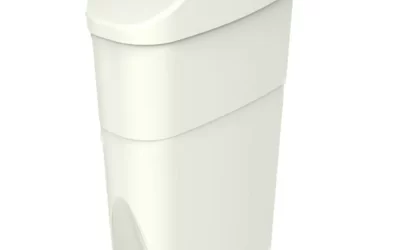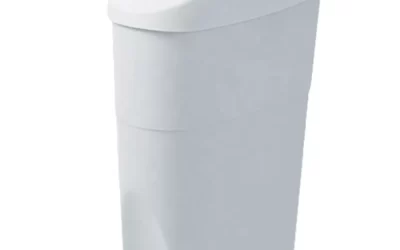Sustainable waste management is becoming increasingly important in today’s world. One area that is often overlooked when it comes to waste management is the disposal of feminine hygiene products. Proper disposal of these products is crucial to maintaining hygiene in public restrooms, and it also has a significant impact on the environment. One way to address this issue is by hiring a sanitary bins service provider. In this article, we will discuss the benefits of using sanitary bins for sustainable waste management.
Table of Contents
- Introduction
- What are Sanitary Bins?
- Benefits of Using Sanitary Bins
- Hygiene and Safety
- Cost-Effective
- Environmentally Friendly
- How Sanitary Bins Contribute to Sustainable Waste Management
- Reducing Landfill Waste
- Preventing Clogs and Blockages
- Reducing Carbon Footprint
- Sanitary Bin Maintenance and Disposal
- Conclusion
- FAQs
What are Sanitary Bins?
Sanitary bins are specially designed receptacles that are used to dispose of feminine hygiene products, such as sanitary pads and tampons. They are usually placed in public restrooms, such as those in schools, offices, and shopping centers. These bins are made from durable and easy-to-clean materials and come in different sizes and styles to fit various needs.
Benefits of Using Sanitary Bins
Hygiene and Safety
One of the primary benefits of using sanitary bins is maintaining proper hygiene and safety in public restrooms. Feminine hygiene products can carry bacteria and viruses that can cause infections and diseases. Proper disposal of these products in sanitary bins helps prevent the spread of these harmful microorganisms. Moreover, it also helps maintain the cleanliness and neatness of the restroom, which is crucial for the overall health and well-being of the public.
Cost-Effective
Using sanitary bins can be cost-effective for businesses and organizations that provide public restrooms. Sanitary bins are durable and long-lasting, which means they require minimal maintenance and replacement costs. Moreover, they help prevent clogs and blockages in the sewage system, which can lead to expensive repairs.
Environmentally Friendly
Sanitary bins are environmentally friendly compared to other disposal methods, such as flushing feminine hygiene products down the toilet. When these products are flushed, they can end up in the sewage system and pollute waterways and oceans. Sanitary bins, on the other hand, ensure proper disposal of these products and prevent them from ending up in landfills or polluting water sources.
How Sanitary Bins Contribute to Sustainable Waste Management
Reducing Landfill Waste
Sanitary bins contribute to sustainable waste management by reducing the amount of waste that ends up in landfills. Feminine hygiene products are not biodegradable and can take years to decompose. When these products are properly disposed of in sanitary bins, they can be safely incinerated or sent to a waste treatment plant, where they can be turned into renewable energy.
Preventing Clogs and Blockages
Sanitary bins also help prevent clogs and blockages in the sewage system. When feminine hygiene products are flushed down the toilet, they can accumulate and cause clogs in the pipes. These clogs can lead to sewage backups, which are not only expensive to repair but also pose health risks to the public. Using sanitary bins prevents these issues and helps maintain the proper functioning of the sewage system.
Reducing Carbon Footprint
Using sanitary bins also helps reduce the carbon footprint of businesses and organizations. By properly disposing of feminine hygiene products, businesses can avoid the need for costly sewage repairs, which require heavy machinery and consume a lot of energy. Moreover, sanitary bins can be made from recycled materials, which reduces the need for new resources and reduces the carbon emissions associated with the production and transportation of new materials.
Sanitary Bin Maintenance and Disposal
To ensure the effectiveness of sanitary bins for sustainable waste management, proper maintenance and disposal practices must be followed. The bins should be regularly emptied and cleaned to prevent odors and bacteria growth. The contents of the bins should be disposed of in accordance with local regulations and guidelines, which may vary depending on the location and waste treatment facilities available.
It’s also important to note that not all feminine hygiene products can be disposed of in sanitary bins. Items such as diapers, wipes, and plastic wrappers should be disposed of in regular trash bins to prevent clogs and blockages.
Conclusion
In conclusion, using sanitary bins for the disposal of feminine hygiene products has numerous benefits for sustainable waste management. These bins help maintain proper hygiene and safety in public restrooms, are cost-effective, and are environmentally friendly. They also contribute to reducing landfill waste, preventing clogs and blockages, and reducing carbon footprint.
By adopting the use of sanitary bins, businesses and organizations can not only improve the health and well-being of the public but also contribute to the preservation of the environment.
FAQs
- Can all feminine hygiene products be disposed of in sanitary bins?
- No, only sanitary pads and tampons should be disposed of in sanitary bins. Items such as diapers and wipes should be disposed of in regular trash bins.
- How often should sanitary bins be emptied?
- Sanitary bins should be emptied regularly to prevent odors and bacteria growth. The frequency of emptying depends on the usage and capacity of the bin.
- Are sanitary bins expensive to maintain?
- Sanitary bins are generally cost-effective and require minimal maintenance and replacement costs.
- Can sanitary bins be made from recycled materials?
- Yes, sanitary bins can be made from recycled materials, which reduces the need for new resources and reduces carbon emissions.
- Can improper disposal of feminine hygiene products lead to health risks?
- Yes, improper disposal of feminine hygiene products can lead to the spread of harmful microorganisms, infections, and diseases. It can also lead to sewage backups, which pose health risks to the public.
Related Posts
Sanitary Bins Disposal Regulations in Kenya
The Importance of Sanitary Bins in Commercial Bathrooms: A Guide for Business Owners
The Benefits of Regular Sanitary Bin Maintenance in Kenya





0 Comments